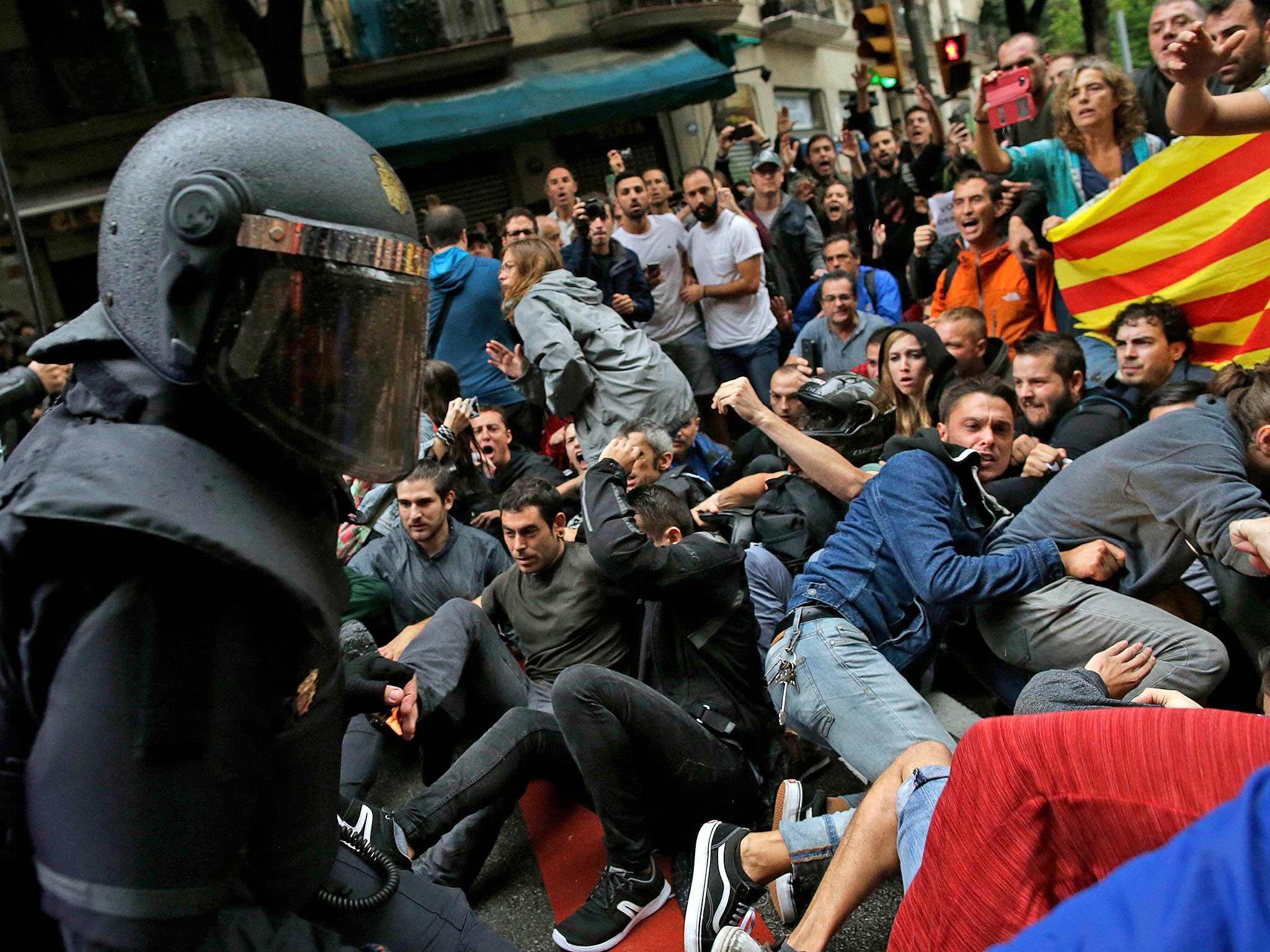Spain admits spending £77m on extra police to quash Catalan independence movement
‘It’s a high price that all Spanish people have to pay thanks to the pro-independence government that was running Catalonia’

Your support helps us to tell the story
From reproductive rights to climate change to Big Tech, The Independent is on the ground when the story is developing. Whether it's investigating the financials of Elon Musk's pro-Trump PAC or producing our latest documentary, 'The A Word', which shines a light on the American women fighting for reproductive rights, we know how important it is to parse out the facts from the messaging.
At such a critical moment in US history, we need reporters on the ground. Your donation allows us to keep sending journalists to speak to both sides of the story.
The Independent is trusted by Americans across the entire political spectrum. And unlike many other quality news outlets, we choose not to lock Americans out of our reporting and analysis with paywalls. We believe quality journalism should be available to everyone, paid for by those who can afford it.
Your support makes all the difference.Spain’s Interior Minister has revealed that the special deployment of thousands of Civil Guards and state police in Catalonia last autumn to stop a banned referendum on independence ultimately cost the state €87m (£76.6m).
Juan Ignacio Zoido strongly defended the police operations around the 1 October vote, which did not subside fully until the last withdrawal of extra police patrols three months later.
The clashes during the referendum saw hundreds of would-be voters reporting injuries and police actions were criticised around the world. But the minister said their response at the time was “legitimate, proportional and professional”.
“They used the least force possible,” Mr Zoido told a Spanish parliamentary committee on Thursday. He said he regretted the injuries, “which never should happen”, when police attempted to close down polling stations during what he called “perfectly organised passive resistance”.
He claimed, too, that some groups on 1 October had been “organised by radicals, to stop the security forces from getting inside the polling stations. They weren’t just there to vote.” He did admit, however, that “not all” those voting were “radicals”.
Human Rights Watch, the US-based rights organisation, said it believed the police and Civil Guards in the banned referendum had been “marred by excessive use of force”, something it reiterated in its annual report presented in Paris on Thursday.
In one polling station in Barcelona, witnesses said police used axes to break down doors, fired rubber bullets, one of which hit a voter in the eye, and charged the crowds outside. Mr Zoido said yesterday rubber bullets had only been fired on one occasion during the referendum to enable police to withdraw when faced by a hostile crowd.
Mr Zoido was criticised during his appearance in parliament by almost all opposition parties, with a Socialist Party spokesman saying “there was too much improvisation and not enough forward planning” on the part of the Spanish authorities at the time.
The Spanish government revealed that a maximum of 6,000 state police and Civil Guards had been sent in to Catalonia, although on any given day the during the three months of deployment the police numbers averaged 4,500.
The last of the special deployment left Catalonia on 30 December, nine days after regional elections saw the Nationalists return to power with a narrow majority.
Mr Zoido laid the blame for the expense of the police operation squarely at the door of the Nationalists, saying: “It’s a high price that all Spanish people have to pay thanks to the pro-independence government that was running Catalonia.”
He also fiercely criticised the local Catalan police for what he called “inaction” despite their attending various police meetings “with big ring binders full of papers outlining what they were going to do” to stop the referendum, plans they apparently then failed to execute.
Join our commenting forum
Join thought-provoking conversations, follow other Independent readers and see their replies
Comments